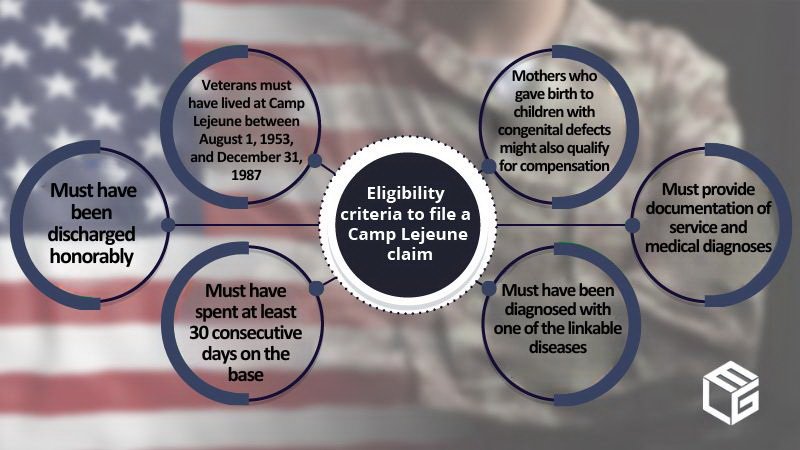Attention: We are no longer taking Camp Lejeune cases!
Trichloroethylene exposure has been associated with autoimmune disease in veterans
According to the National Institutes of Health, autoimmune disease currently occurs in over 23 million individuals in the United States. The cause of these health conditions is not entirely known, but studies found that certain microorganisms and substances can trigger changes in the body that confuse the immune system.
People with a family history of autoimmune disease are considerably more prone to developing one of these conditions. The following are the most common autoimmune diseases:
- rheumatoid arthritis
- Crohn's disease
- lupus
- psoriasis
- multiple sclerosis
- scleroderma
- Graves' disease
- myasthenia gravis
- Hashimoto thyroiditis
Recent studies found that exposure to polychlorinated biphenyls, dioxins, acetone, carbon tetrachloride, benzene, trichloroethylene, xylene, and toluene, some of which are contaminants lurking on Camp Lejeune, may significantly contribute to the development of autoimmune disease. If you were stationed at this military base for at least 30 consecutive days and now struggle with an autoimmune disease, do not hesitate to contact our law firm, as you are most likely entitled to compensation. Our skilled attorneys will file a Camp Lejeune toxic water claim on your behalf.
The connection between autoimmune disease and toxic exposure
A 2021 study from the medical journal Integrative Medicine found that environmental factors such as toxic chemicals are a key factor in the rapid progression of autoimmune disease that we can observe.
Organic pollutants, toxic metals, solvents, and endocrine disruptors can:
- deplete antioxidant reserves
- bind to immune and endocrine receptors and promote immune dysregulation
- promote immune barrier degradation
Toxic agents such as mercury, aluminum, dioxins, pesticides, trichloroethylene, and many other industrial and environmental contaminants have been associated with autoimmunity in both animal and human studies. They can induce oxidative stress and alterations of immune cell messenger systems. Furthermore, toxic chemicals with endocrine-disrupting properties can bind to estrogen and pituitary receptors, leading to immune dysfunction. These mechanisms contribute to immune activation and dysregulation.
A strong link between autoimmune disease and exposure to organic solvents was found in a study from the medical journal PLOS One. Research in this respect began in 1957 when several people developed a scleroderma-like syndrome following exposure to:
- vinyl chloride
- perchloroethylene
- epoxy resins
- trichloroethylene
According to the study, in autoimmune thyroid disease, solvents may interfere with iodine transportation and induce oxidative stress that will trigger an inflammatory response in the thyroid gland.


